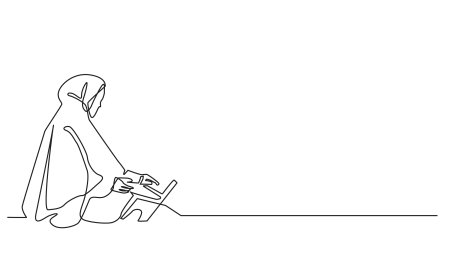The Culture of Cunning
The damage is not only ethical but psychological. Once the collective mind learns to justify wrongdoing as survival, no institution can function. Our tragedy is not that we lack intelligence, but that we misuse it. We have mistaken cunning for cleverness and substituted wisdom with opportunism.

For decades, a peculiar feeling has seeped into our collective consciousness -- that honesty is no longer a viable survival strategy. The notion has gained such acceptance that people rarely question it anymore. To win the battle of life, it seems, one must bend the rules, cut corners, and outsmart others. Following the straight path, we are told, is the road to defeat.
This widespread belief has transformed cunning into a kind of national philosophy, a silent doctrine that glorifies manipulation as intelligence and deceit as smartness.
Yet, beneath this shiny surface of “modern success,” lies the quiet erosion of our moral foundation. The culture of cunning, if left unchecked, will one day hollow out our very sense of nationhood.
The difference between cunning and wisdom may appear subtle, but their outcomes could not be more opposed.
Cunning serves the self; wisdom serves the system. Cunning provides short-term advantage, wisdom ensures long-term progress.
A cunning employee eats away at the roots of an institution, while a wise employee nourishes its growth. A cunning politician throws dust in the eyes of the people to gain power; a wise leader safeguards the future even at personal cost. The difference lies not in intellect, but in intention. And it is in this moral intention that societies are made or destroyed.
The developed world did not arrive at its prosperity merely through innovation or wealth, but through wisdom institutionalized over centuries. Their progress was built on an ethical contract between the individual and the collective. The workplace there is not merely a source of income, but a space of responsibility. People consider their institutions as extensions of their identity -- not places to exploit, but to uphold. Discipline is not enforced by fear, it is internalized as habit.
To many in the developing world, such people often appear naïve. They do not rush to deceive, do not manipulate their way to profit, do not worship the shortcut. They appear slow, almost “stupid,” in their unwillingness to cheat the system. But this so-called stupidity has created stability. Their dedication to institutions, their respect for rules, and their belief in fairness have built systems that endure the test of time.
A European university founded five centuries ago still functions with order and dignity. An American company from the 19th century continues to thrive because its foundations were ethical before they were financial. When a car runs according to the rules of the road, it may not always move fast, but it reaches far.
That is the secret of their endurance -- the wisdom to follow the wheel of rules, not the mirage of shortcuts.
The contrast with the Third World, specially societies like ours, could not be starker. Institutions here often resemble “fields of opportunity” rather than spaces of responsibility. The office, the school, the ministry, or even the smallest public institution becomes a site of extraction, not contribution.
In the collective imagination, the institution is a goose that lays golden eggs -- something to exploit while it lasts. But when greed grows unchecked, the goose is soon slaughtered in the name of cleverness. The tragedy is that few realize the absurdity of this act. For the cunning, the goal is not to sustain the source but to drain it dry.
This mentality has far-reaching consequences that go beyond the economy. It corrodes the moral ecosystem of the nation. When the smallest dishonesty becomes socially acceptable, it does not remain small for long. Petty corruption normalizes grand corruption.
A junior officer’s misuse of public funds becomes the justification for a minister’s embezzlement. When the lines between right and wrong blur, honesty itself becomes a liability. Society reaches a dangerous point where integrity is mocked as foolishness, and deceit is celebrated as cleverness. The psychology of cunning soon becomes the national ideology.
The damage is not only ethical but psychological. Once the collective mind learns to justify wrongdoing as survival, no institution — however well designed -- can function.
The police cannot ensure justice if the officer believes in shortcuts. The teacher cannot produce thinkers if he sells grades. The doctor cannot save lives if he values commissions more than patients.
A nation’s greatness lies not in its GDP, but in its mindset. Progress is not a matter of wealth, but of values.
The developed world’s secret lies precisely here -- in their mental architecture. They are not perfect, nor are they free from corruption or selfishness. But their moral compass still points toward responsibility. Their citizens know that destroying the foundation for short-term gain is suicide. They understand that systems survive not by intelligence alone, but by integrity.
In contrast, many of us are still busy proving how “clever” we are by deceiving systems that were built to serve us.
There is a profound irony here. We take pride in outsmarting the very institutions designed to protect us. We cheat the tax system, then complain about poor infrastructure. We bribe officials for convenience, then lament about corruption. We glorify the “smart” student who copies his way through exams, and later wonder why the country lacks competent professionals.
Our tragedy is not that we lack intelligence, but that we misuse it. We have mistaken cunning for cleverness and substituted wisdom with opportunism.
In this culture, even moral decay is rationalized as necessity. The small businessman evading tax says he must do so to survive. The official misusing public funds says he deserves it for working hard. The citizen who breaks traffic rules blames the system for inefficiency. Everyone has a reason, and no one feels responsible. The collective outcome is chaos disguised as cleverness.
A society can recover from poverty, disaster, or even war. But it cannot recover easily from moral disintegration. Once the idea that “honesty doesn’t pay” becomes entrenched, rebuilding trust becomes a generational challenge. We are living in a time where material progress is visible, yet moral poverty deepens.
Roads are being built, skyscrapers are rising, GDP graphs are climbing -- but beneath it all lies a widening crater of mistrust. Institutions collapse not because they lack talent or resources, but because they lose integrity.
The path forward requires a radical rethinking of what we define as success. A society obsessed with cleverness produces opportunists, not visionaries. A nation guided by wisdom produces builders, not looters. True intelligence is not in bending rules but in creating systems that endure beyond individual interests. It is the difference between constructing a temporary shelter and building a home for generations.
It is said that a clever man makes his own way, but a wise man makes the way for society. Developed nations chose the latter path. They built systems where responsibility is not an act of sacrifice but a source of pride.
Meanwhile, much of the Third World remains trapped in the illusion of personal gain, mistaking manipulation for mastery. The outcome is predictable -- fleeting success, enduring instability.
The real test of intelligence for a nation is not how fast it can grow, but how honestly it can sustain growth. It is not how many people can become rich, but how many can remain righteous. The tragedy of our time is that cunning has become fashionable and morality old-fashioned.
But history has always been unkind to civilizations that worshipped cleverness over conscience.
If we are to reclaim our dignity as a nation, we must rediscover the forgotten virtue of wisdom -- the courage to do right when deceit is easier, the patience to follow rules when shortcuts tempt, and the faith that honesty may be slow but is never futile. The path of wisdom may not bring instant victory, but it builds nations that last.
H. M. Nazmul Alam is an Academic, Journalist, and Political Analyst based in Dhaka, Bangladesh. Currently he is teaching at IUBAT. He can be reached at [email protected].
What's Your Reaction?
















































































